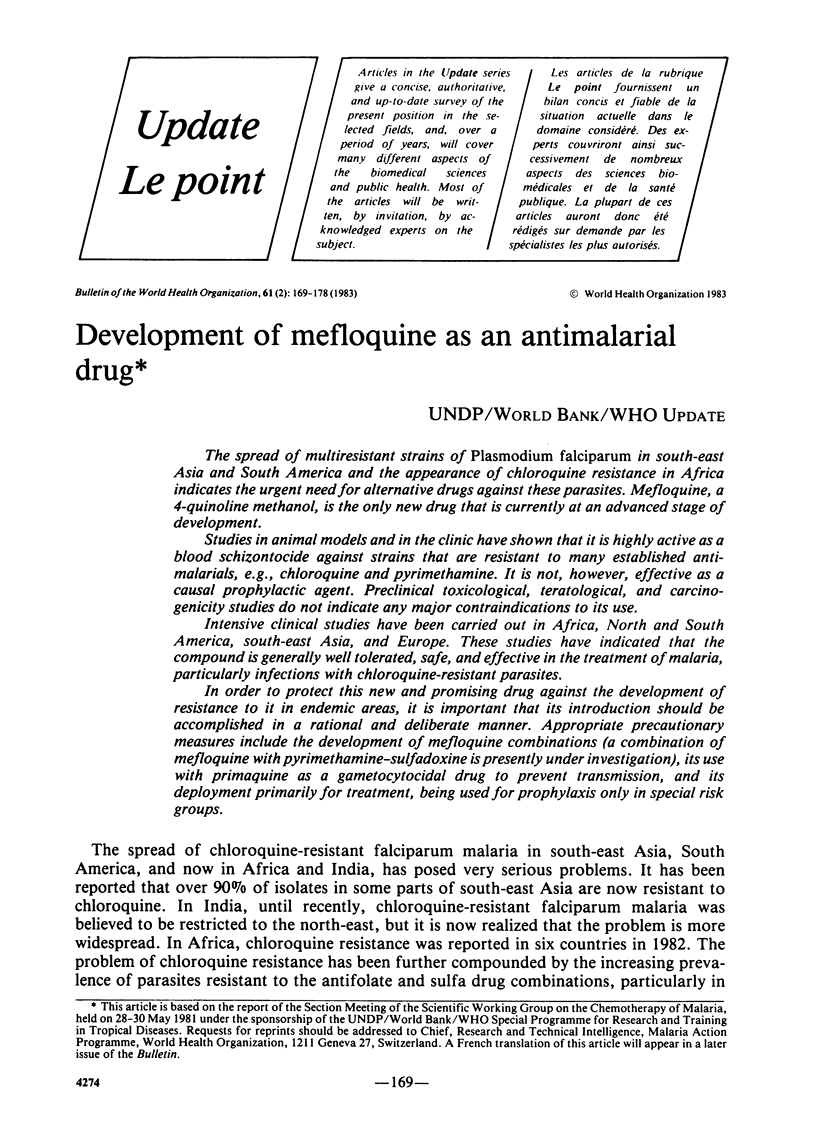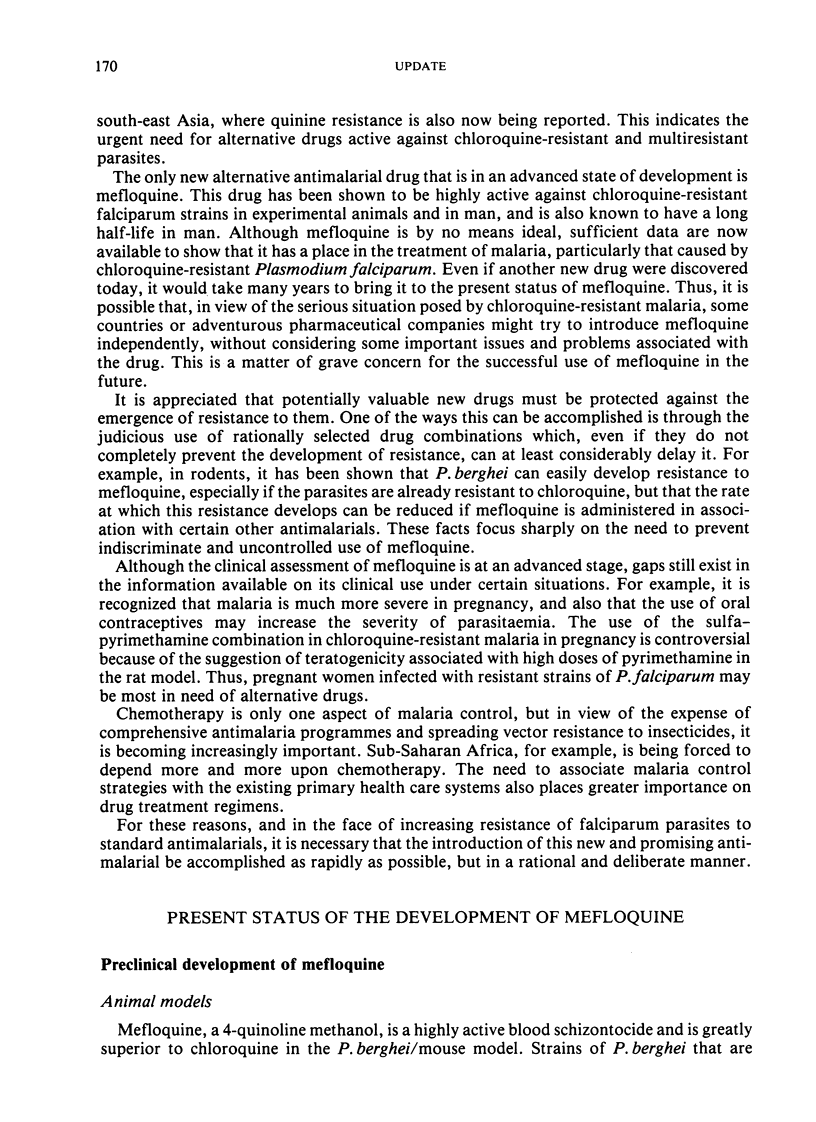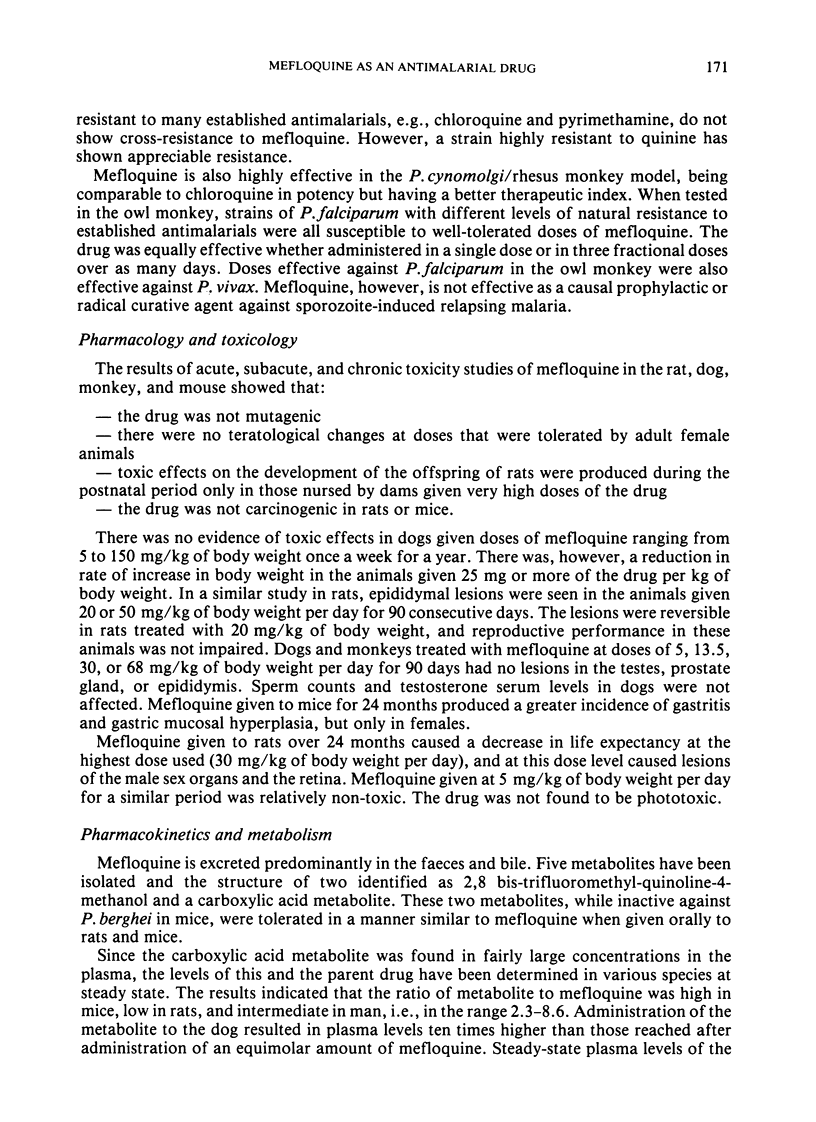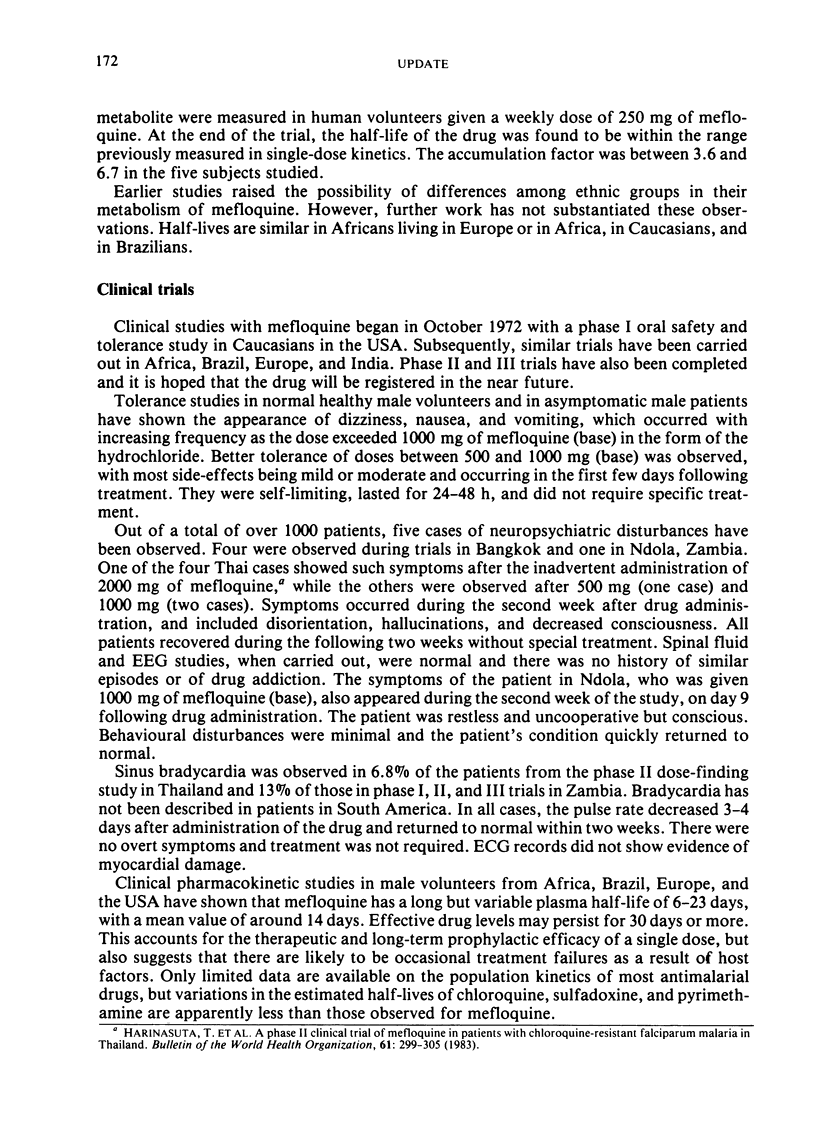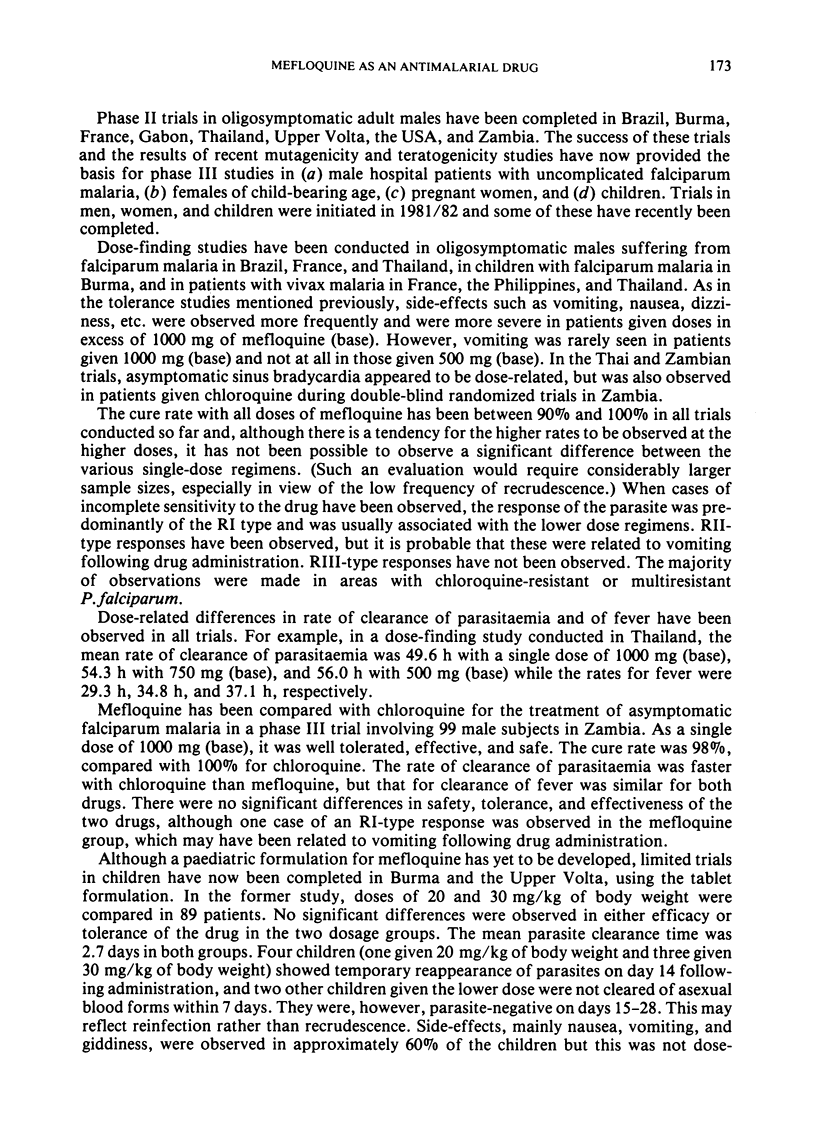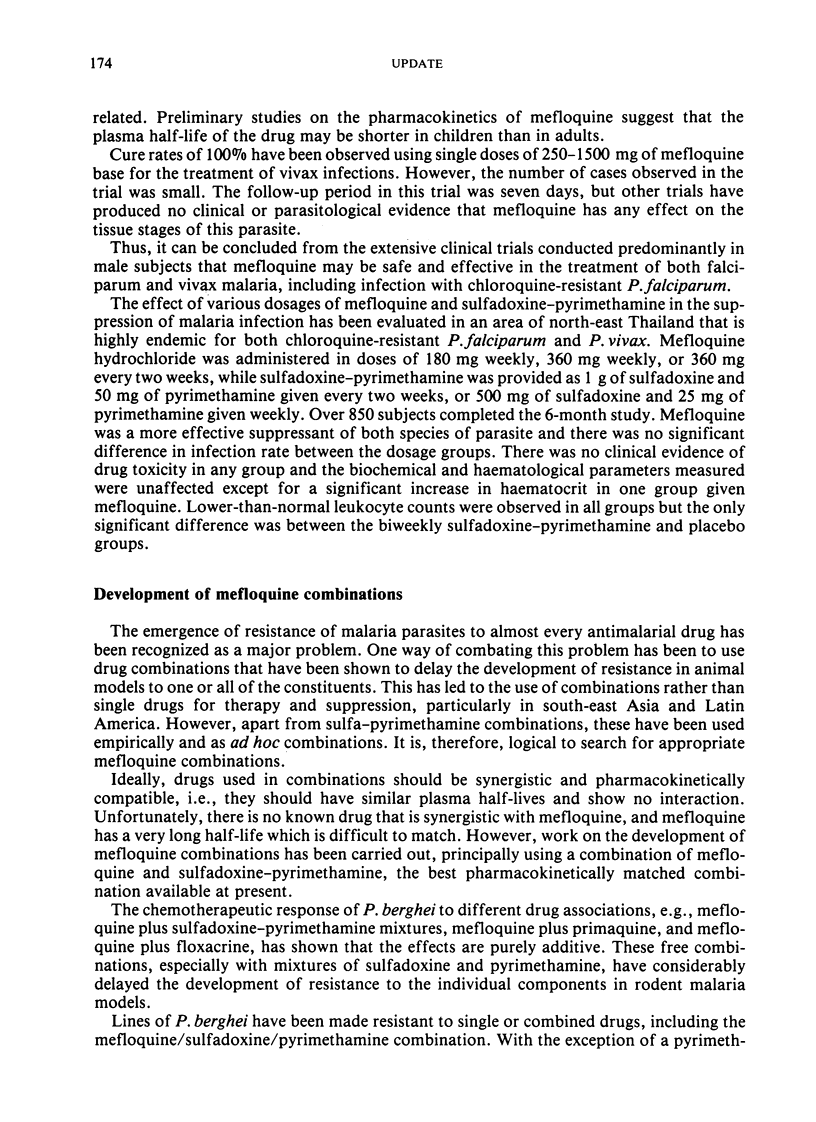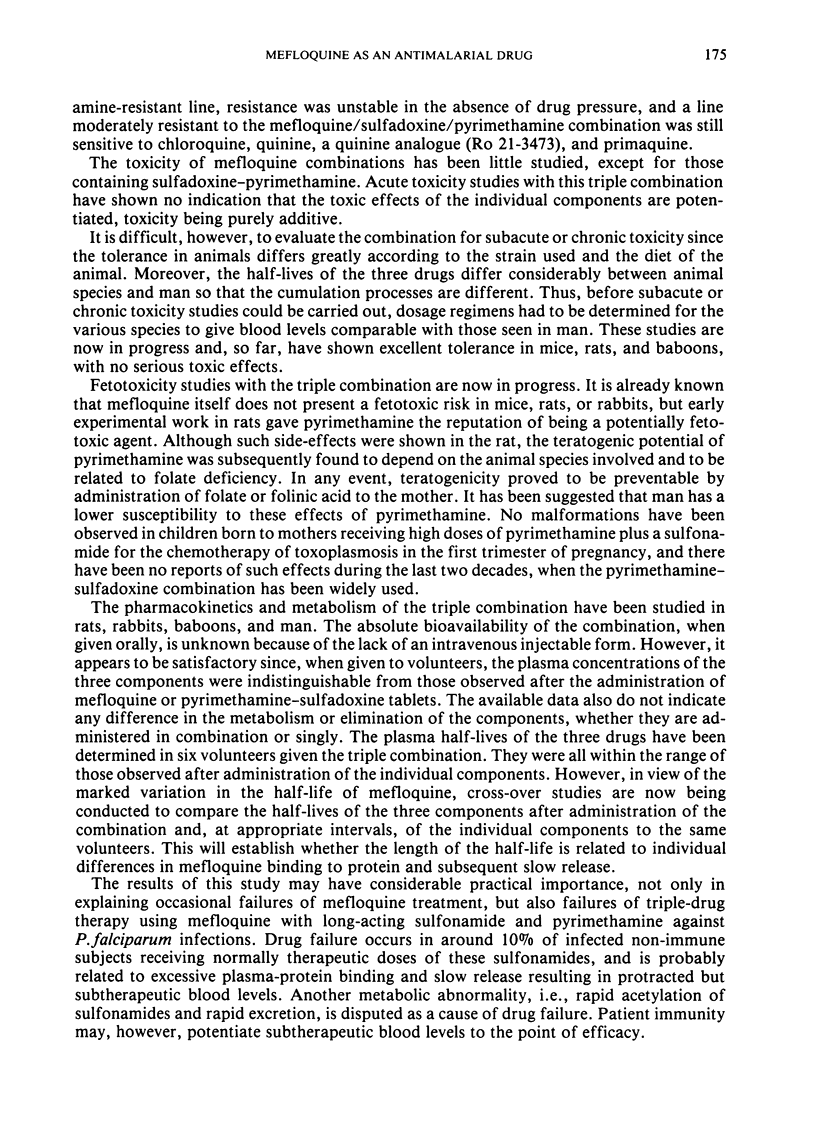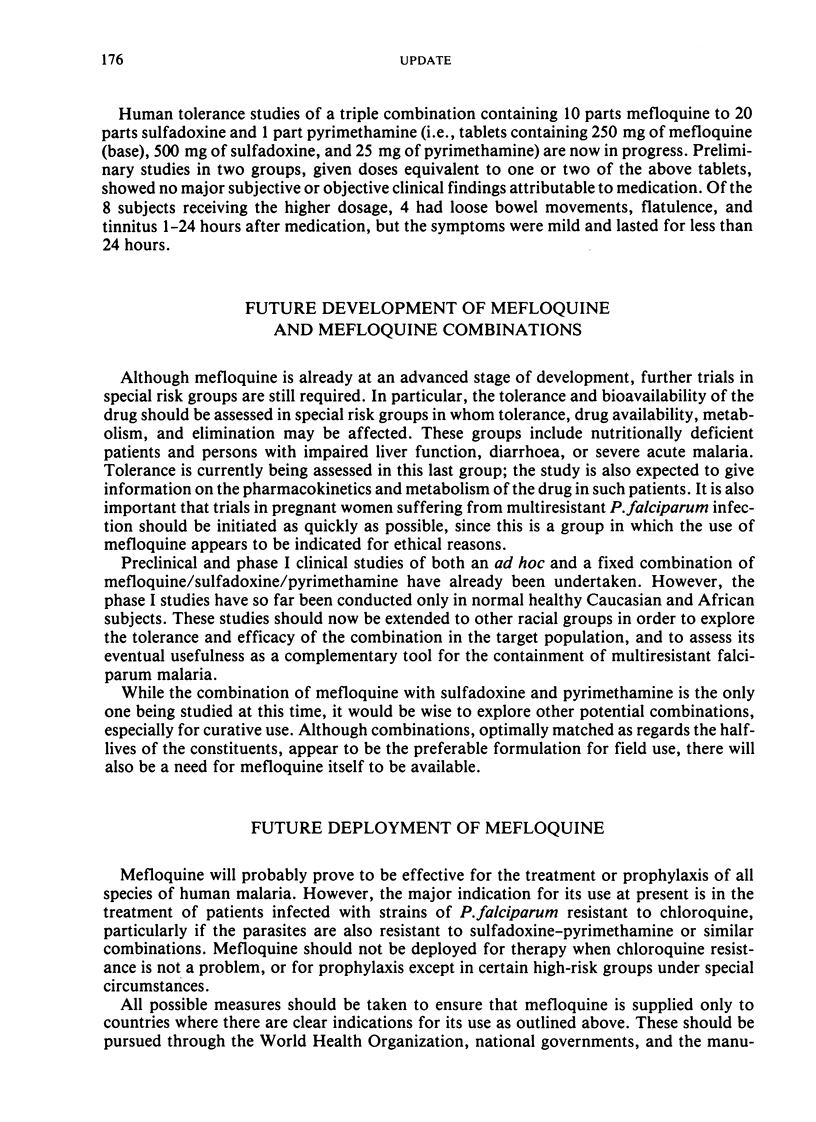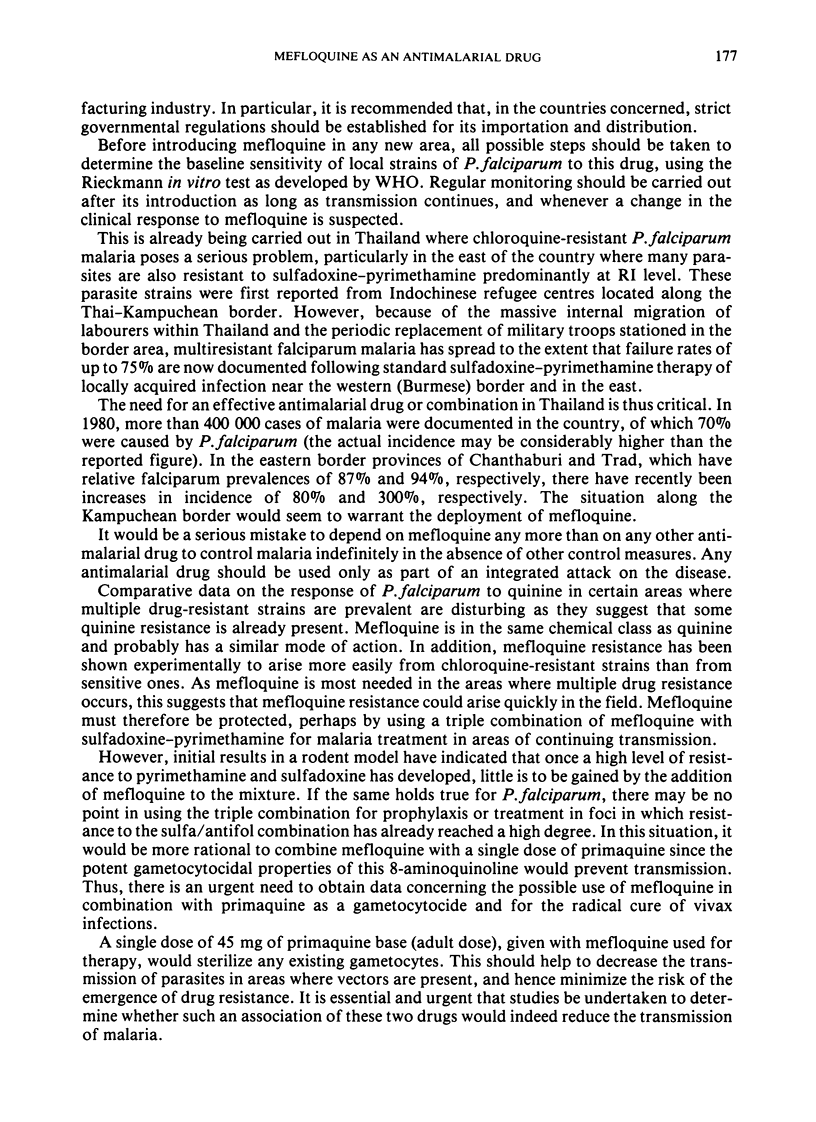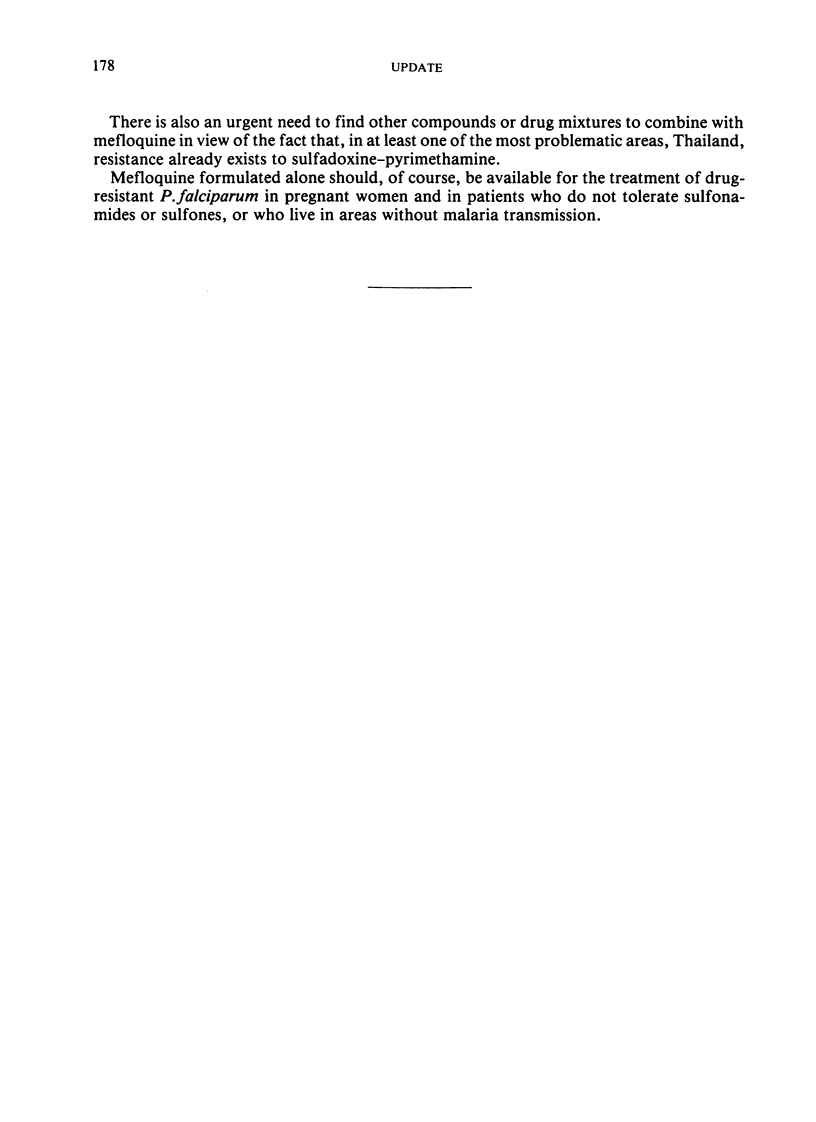Abstract
The spread of multiresistant strains of Plasmodium falciparum in south-east Asia and South America and the appearance of chloroquine resistance in Africa indicates the urgent need for alternative drugs against these parasites. Mefloquine, a 4-quinoline methanol, is the only new drug that is currently at an advanced stage of development.
Studies in animal models and in the clinic have shown that it is highly active as a blood schizontocide against strains that are resistant to many established antimalarials, e.g., chloroquine and pyrimethamine. It is not, however, effective as a causal prophylactic agent. Preclinical toxicological, teratological, and carcinogenicity studies do not indicate any major contraindications to its use.
Intensive clinical studies have been carried out in Africa, North and South America, south-east Asia, and Europe. These studies have indicated that the compound is generally well tolerated, safe, and effective in the treatment of malaria, particularly infections with chloroquine-resistant parasites.
In order to protect this new and promising drug against the development of resistance to it in endemic areas, it is important that its introduction should be accomplished in a rational and deliberate manner. Appropriate precautionary measures include the development of mefloquine combinations (a combination of mefloquine with pyrimethamine—sulfadoxine is presently under investigation), its use with primaquine as a gametocytocidal drug to prevent transmission, and its deployment primarily for treatment, being used for prophylaxis only in special risk groups.
Full text
PDF